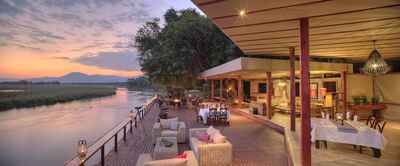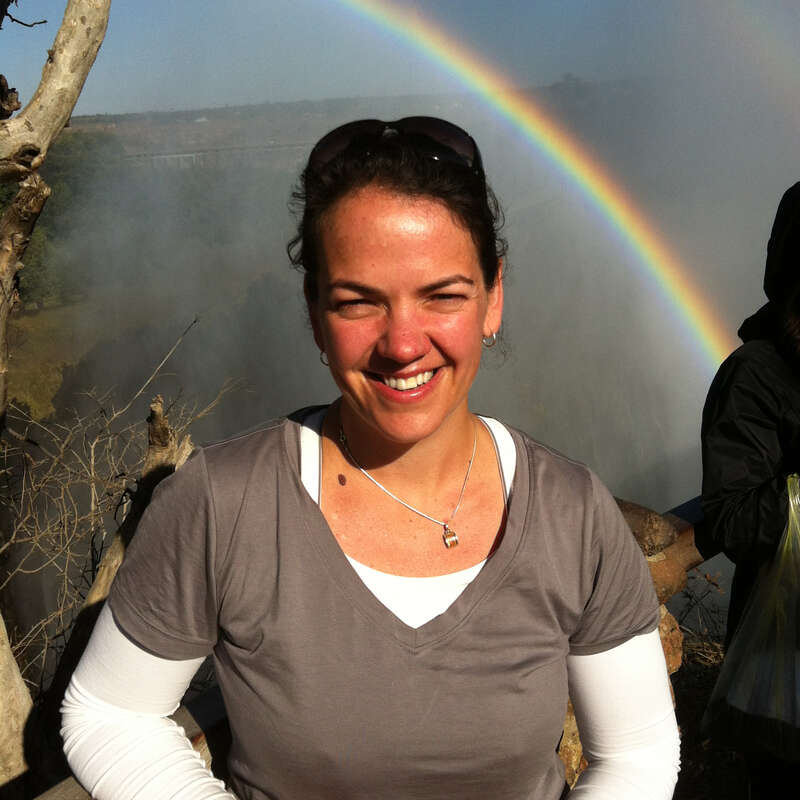About Sausage Tree Camp
Holding a picturesque Zambezi Riverside location, overlooking reed islands where elephant and buffalo graze, Sausage Tree Camp combines luxury and safari impeccably.
Having undergone various transformations since its inception as a bushcamp in 1996, the most recent version of Sausage Tree Camp is stylish, luxurious and extremely well run. Named after the instantly recognisable Sausage Tree, for its large sausage shaped fruit, lush green canopy and striking red flowers, the camp is set under a shady cover of sausage and mahogany trees on the banks of the Zambezi River. It’s a haven for guests and the wildlife that often ambles through camp.
Sausage Tree Camp’s centre is a large teak deck, overlooking the Zambezi River and its reed islands. Plush leather sofas, a social bar and umbrella shaded tables are all comfortable vantage points from which to watch yawning hippos, elephants crossing, buffalo grazing and kingfishers fishing. Nearby a 25-metre lap pool lined with cane sunloungers also face this spectacular and ever interesting view.
Spaced out along the riverbank, leaving plenty of room for elephant highways, seven suites and a two-bedroom house sit up on raised decks, each under a Bedouin style canvas canopy. Clean lines, a contemporary colour scheme and individual furniture pieces exemplify bush chic in these spacious and well thought out rooms. A private plunge pool is particularly welcome in the hotter months.
What sees travellers return to Sausage Tree Camp time and time again is the excellent service and genuinely warm welcome. The variety of activities and safari experiences is also stand out here, with a choice of game drives in search of big game, informative walks through palm woodlands, tranquil canoe trips along the picturesque Chifungulu Channel, scenic boat cruises and exciting fishing forays. All interspersed with surprise bush experiences creating lasting memories.
Our view
Sausage Tree is one of the most luxurious camps in the Lower Zambezi National Park. We believe this is as much a result of the high standard of service as the spacious and stylish accommodation. Combine this with superb private guiding in a beautiful wildlife area and you have a great balance that we think works really well.
Accommodation
7 Suites, 1 Family House
Children
Best for 12+
Open
1 April to 30 November
Activities

4WD Safari

Birdwatching

Boat trip

Canoeing

Fishing

Guided walking safari

Night drive
Traveller reviews of Sausage Tree Camp
44 real, un-edited reviews from Expert Africa's travellers.
Arrived 15 Jun 2024, 2 nights
"Sausage Tree Camp review"
Overall rating: Excellent
Arrived 25 May 2024, 4 nights
"Sausage Tree Camp review"
Overall rating: Excellent
Arrived 1 Sep 2023, 4 nights
"Sausage Tree Camp review"
Overall rating: Excellent
Arrived 22 Aug 2023, 4 nights
"Sausage Tree Camp review"
Overall rating: Excellent
Arrived 11 Aug 2023, 7 nights
"Sausage Tree Camp review"
Overall rating: Excellent
Arrived 1 Apr 2022, 4 nights
"Sausage Tree Camp review"
Overall rating: Excellent
Arrived 14 Oct 2021, 2 nights
"Sausage Tree Camp review"
Overall rating: Excellent
Arrived 15 Aug 2021, 5 nights
"Sausage Tree Camp review"
Overall rating: Excellent
Arrived 19 Jun 2021, 4 nights
"Sausage Tree was exceptional in all ways. "
Overall rating: Excellent
Arrived 31 Oct 2020, 4 nights
"3rd lodge on our trip to Zambia."
Overall rating: Excellent
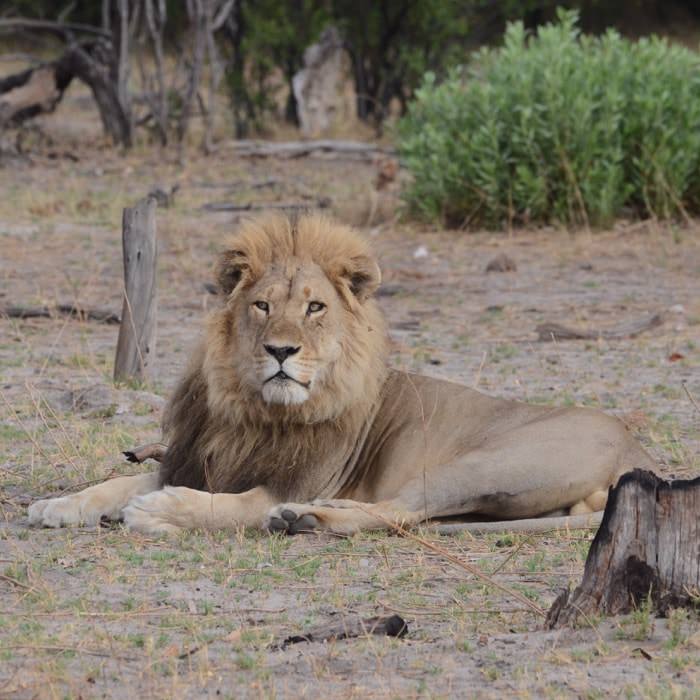
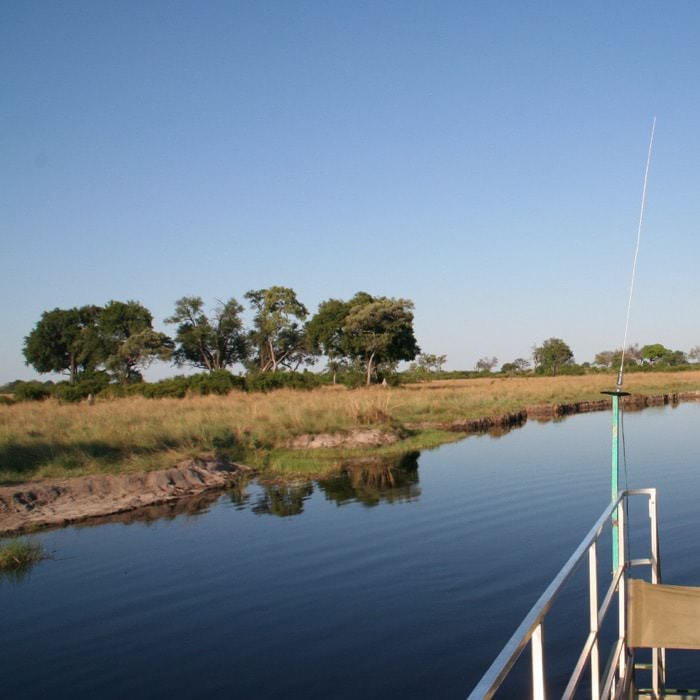
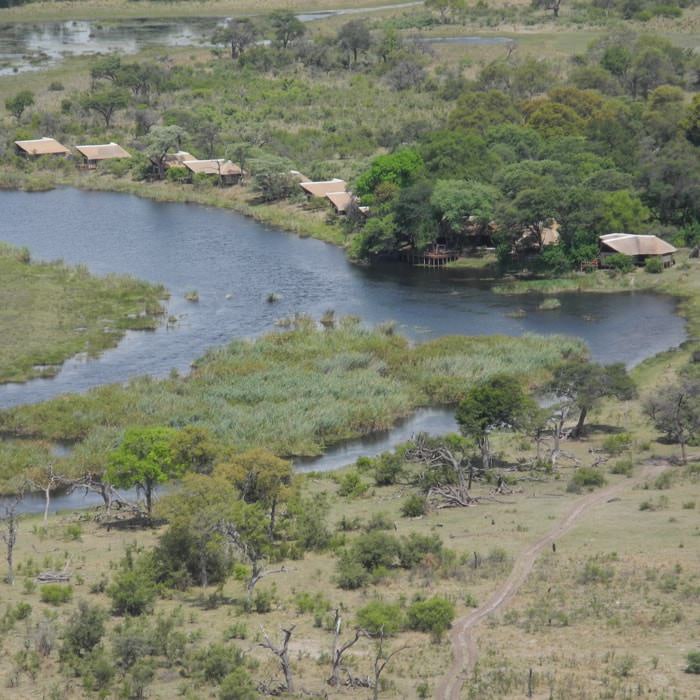
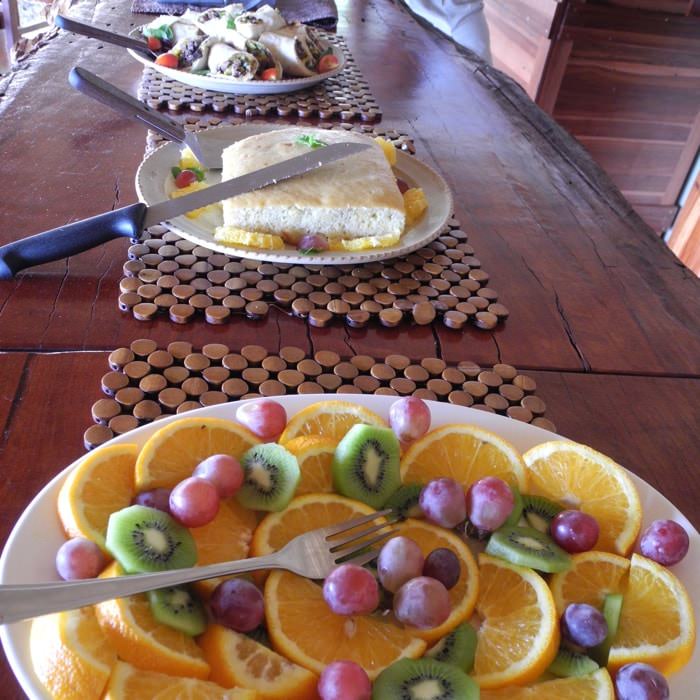
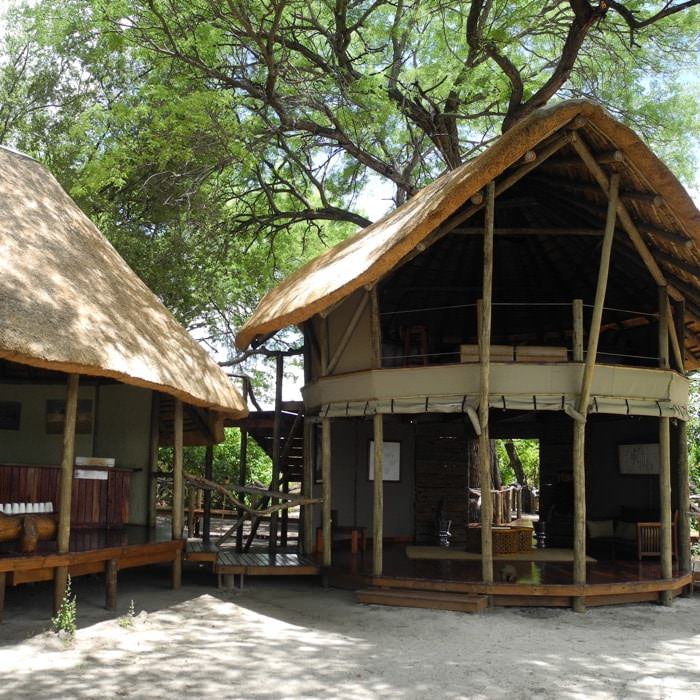
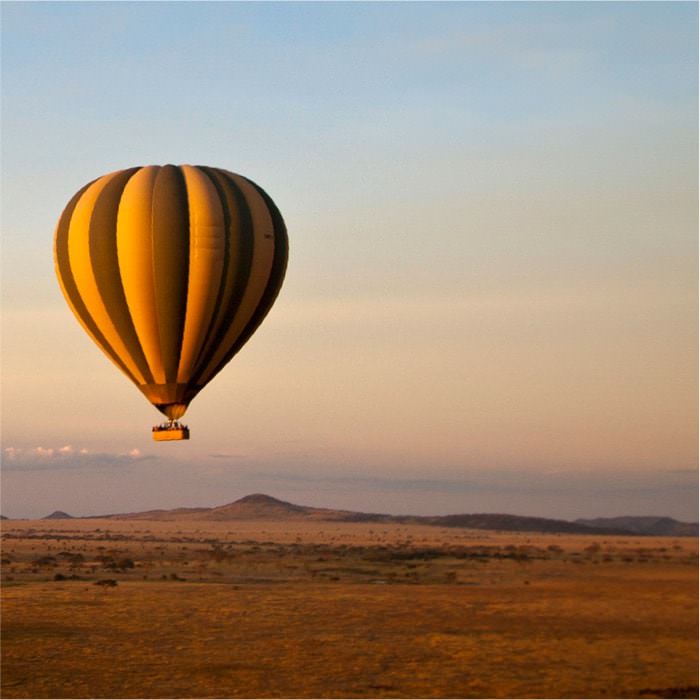
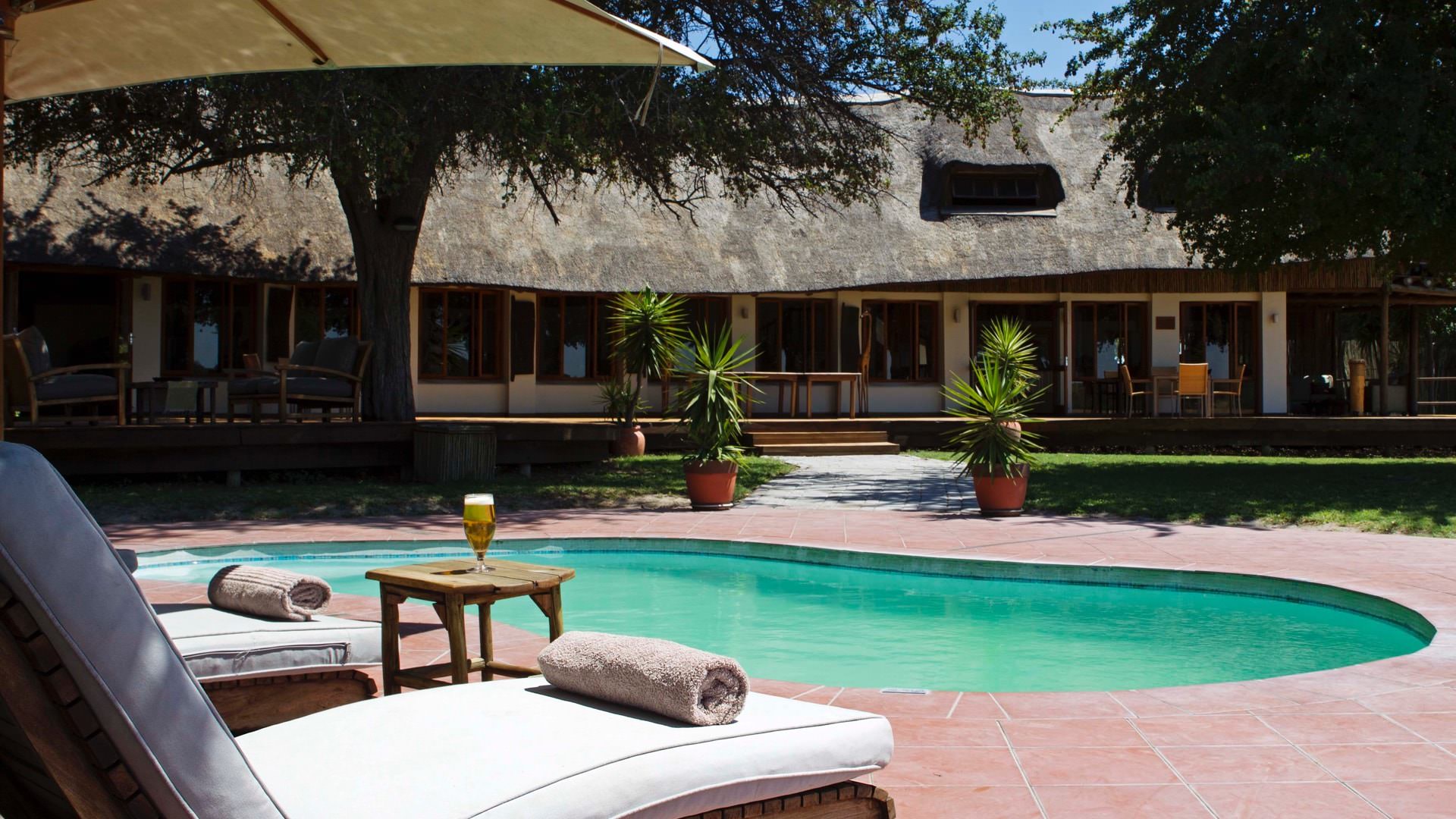
Expert Africa's gallery
When we travel we take lots of photos ourselves to give you a real and un-edited view of the safaris. See our 63 pictures and 1 videos of Sausage Tree Camp to get the candid view.
View gallerySausage Tree Camp: Our full report
Deep within Zambia's Lower Zambezi National Park, Sausage Tree Camp has a wonderful setting overlooking a ...
... portion of the Zambezi River dotted with reed islands. Opened in August 1996 and having undergone various transformations since then, the current incarnation of the camp is stylish, luxurious and very well run. Exceptional service and a very warm welcome combined with a range of activity choices make this a camp that travellers return to time and time again.
Smiling faces, a refreshing drink and a cooling flannel will normally welcome you to Sausage Tree Camp, whether you arrive by safari vehicle or boat. Travellers return to this camp time and time again, and once you’ve experienced the service of the team and enjoyed their hospitality you’ll see why.
Each group of guests is allocated a private guide from a pool of engaging and knowledgeable safari guides. Each room is cared for by a Muchinda, a private room attendant, who looks after every aspect of the guests’ comfort and stay. It is an unobtrusive and excellent added service that can really enhance your stay. Sausage Tree Camp has a team of caring staff, many of whom have been there for years, dedicated to providing excellent service and ensuring a wonderful stay.
The camp underwent a complete rebuild in 2018. Canvas and reed rooms were replaced with seven tented suites and a two-bedroom ‘house’. Evenly spaced and positioned for both privacy and to allow for animal trails between them, all are built in the same luxurious style.
The spacious suites have an entrance reception room with lounge, tea/coffee station and fridge, a spacious bedroom where king-size or twin beds are made up beneath a mosquito net canopy, and a large indoor bathroom with twin sinks, twin rain showers and bath with a river view. Glass doors can slide back to completely open the front of the room onto the large deck with its private plunge pool, and, extended off the bathroom, is a private outdoor shower. Ochre screed floors, natural wood surfaces, individual pieces of furniture and neutral colours create a contemporary, bush chic décor that accentuates the feeling of luxury. Imaginative displays of vegetation, seed pods and origami animal shapes made out of towels are individual touches added by the room Muchinda, whilst complimentary binoculars for guests’ use and the supply of yoga mats show a wonderful attention to detail.
The Lower Zambezi valley gets hot in the dry months from late-September to November. The rooms are not airconditioned, but a cooling air flow is created by ceiling fans in the lounge and above the bed. And the private plunge pool is a wonderfully cool place to wallow between activities.
The two-bedroom Kigelia House is similar in build and style. Made up of two en-suite bedrooms, separated by an open plan living area and fronted by a deck with a slightly larger pool, it’s a great space for a family or friends travelling together.
Sausage Tree Camp’s main area is a vast teak deck, overlooking the Zambezi River. Partially shaded by a wood and canvas roof, the interior has a lounge with comfortable leather sofas and a small library, a social bar to one side and food service area to the other. A step down, the open-air space is dotted with umbrella shaded tables and has a fire brazier and surrounding seating area to one side.
Set to one side of the main area. and running parallel to the Zambezi River is a 25 metre swimming pool, long enough to swim laps. So, if you like a bit of exercise, often not possible in safari camps, then you'll enjoy this feature. Otherwise, simply enjoy the spectacular view whilst taking a dip or relaxing on a comfortable sunlounger.
One of the best features of Sausage Tree Camp is the variety of activities you can enjoy with your private guide. Activities on offer include walking safaris as well as day and night drives in open 4WDs and through a variety of landscapes. It's also possible to canoe down some of the channels that branch off from the main Zambezi River. On own visits we’ve spent some pleasant hours canoeing down the Chifungulu Channel and seen lions coming down to the water to drink, goliath herons, numerous fish eagles, a variety of antelope and large bull elephants crossing or feeding in the waterway. The canoeing channels can be narrow (see the satellite photograph of the camp, and note nearby channels) and the close proximity to hippos and crocodiles can be slightly intimidating, but the guides are excellent at taking their time, making the animals aware of their approach and reading the situation in order to avoid any conflict.
Relaxing morning and afternoon boat cruises on the Zambezi River are a further option and a great way to explore around the islands and along the riverbanks while keeping an eye out for the wildlife and birdlife that the ecosystem supports.
Anglers at Sausage Tree Camp can practice catch-and-release fishing, with high-quality professional rods and reels to cater to both novices and serious fishermen. Try for catfish (barbel), bream and the exciting tiger fish by using bait, spinners or fly-fishing. The first fishing activity of your stay is included. Any additional fishing excursions incur a charge to cover park angling fees, currently US$40 per person. Do be aware that at certain times of the year, if water levels are unusually low, some of the water-based activities may not be possible.
Activities
4WD Safari
Birdwatching
Boat trip
Canoeing
Fishing
Guided walking safari
Night drive
Families & children
- Attitude towards children
- Children over 8 years are welcome at Sausage Tree Camp.
- Property’s age restrictions
- Please note the minimum age for walking and canoeing activities in the Lower Zambezi National Park is 12 years.
- Special activities & services
- Children's programmes can be arranged, to include such activities as 'hunting' (i.e tracking spoor), or making candles and cards.
- Equipment
- There is no furniture designed for small children, but an extra bed can fit comfortably into one of the tents. The Kigelia House has two rooms, so is much better suited to small families. Alternatively, neighbouring sister-camp, Potato Bush Camp, has a two-room family tent.
- Generally recommended for children
- We would recommend Sausage Tree for sensible, mature children who are interested in wildlife and will understand the full safety implications of being in an area of dangerous big game.
- Notes
- Sausage Tree Camp is located on the edge of the Zambezi River and within the Lower Zambezi National Park. There are no fences around the camp, so dangerous animals often do roam freely through the camp. The camp also has a swimming pool which is not fenced in. Children must be supervised by their parents at all times.
Food & drink
- Usual board basis
- Full Board & Activities
- Food quality
- On previous visits, including the most recent in October 2023, we've found it difficult to fault the food at Sausage Tree Camp.
Tea and coffee are delivered to your tent along with your early-morning wake-up call. Then, just prior to the early-morning activity, a light buffet breakfast of toast, muffins, cereal, yoghurt, porridge and fruit is served. The chef is ready behind the grill, offering bacon and eggs cooked to order. The coffee at Sausage Tree Camp is particularly good, with most types available. Whether your preference is a latte, a cappuccino or an espresso, the team can make it for you.
Lunch is served around midday, with a choice of up to three courses. You’ll usually be given the menu at breakfast and asked to pre-order your choice for lunch. There’s typically a selection of main meals such as a meat or vegetable gourmet burger, battered fish with potato wedges, chicken pie or crayfish linguine. For a lighter option the choice might be dishes such as roast vegetable or grilled chicken salad, beef fillet open sandwich or pulled lamb wrap. On our most recent visit we also enjoyed a really good pecan pie with cream for dessert.
Save space for afternoon tea, which is served before your afternoon activity at around 3.30pm. The freshly baked chocolate cake during our stay was moist and delicious! There is also fruit for the more health conscious, along with a selection of hot and cold drinks.
The afternoon activity typically includes sundowner snacks such as chicken skewers, mini samosas, roasted nuts and sushi.
Dinner is usually a three-course meal, and you may be asked to make your selection at afternoon tea time. Starters are often a choice of soups, and we selected and really enjoyed the camp’s version of leek soup. There’s always a choice of meat and vegetarian dishes for the main and we opted for the souse vide beef fillet, creamy mustard mash and fresh vegetables. The meal was rounded off with a delicious crème brulee, topped with blue berries and strawberries.
Occasionally a bush meal experience will replace lunch or dinner in camp.
Our only criticism is that the portions are on the large side, so we didn’t have the space to try every course! - Dining style
- Mixture of group dining and individual tables
- Dining locations
- Indoor and Outdoor Dining
- Further dining info, including room service
- Room service is available during daytime hours, which is unusual for a safari camp. The fridge in your room can be stocked with drinks of your choice and your Muchinda will ask for any requests when you arrive. There is a radio in the room which you can use to order any additional drinks.
- Drinks included
- House wines, soft drinks and a wide selection of local sourced spirits are included. Champagne and premium imported wines and spirits are not.
Guests are gifted an aluminum drink bottle upon arrival as an initiative to save on plastic waste from bottled water. Your drink bottle is refilled with cold, filtered and safe drinking water whenever it is required and always before any safari activities.
Our travellers’ wildlife sightings from Sausage Tree Camp
Since mid-2018, many of our travellers who stayed at Sausage Tree Camp have kindly recorded their wildlife sightings and shared them with us. The results are below. Click an animal to see more, and here to see more on our methodology.

100% success

100% success

100% success

93% success

85% success

54% success

46% success

31% success

8% success

0% success

0% success

0% success

0% success
Getting there
- Location
- Lower Zambezi National Park, Zambia
- Ideal length of stay
- We'd recommend a minimum of three nights to make the most of the environment and wildlife around Sausage Tree Camp, and the variety of activities.
- Directions
- The flight from Lusaka to Jeki Airstrip takes approximately 35 minutes. From here, it's around a 10-minute drive to the river, where you’ll board a motorboat for a river transfer to camp, taking about 40 minutes.
- Accessible by
- Fly-and-Transfer
Special interests
- Honeymoons
- Sausage Tree Camp is romantic, elegant, peaceful and remote: perfect for a honeymoon in Zambia. Each suite is spacious with a private plunge pool, and you’ll have a private guide for your activities.
- See ideas for Honeymoons in Zambia
- Birdwatching safaris
- Sausage Tree is great for birdwatching in Zambia, with land and water birds seen from game drives, walks, canoeing and from the camp itself. Our best sightings included goliath herons, giant kingfishers, carmine bee-eaters, open-billed stork and tropical boubou.
- See ideas for Birdwatching safaris in Zambia
- Walking safaris
- Sausage Tree Camp's guides are knowledgeable and engaging, helping to bring the bush alive. The variety of scenic environments around camp, from tall riverine forest to open plains dotted and hidden lagoons make Sausage Tree one of the best locations for walking safaris in Zambia. And you can walk straight out of camp - magical!
- See ideas for Walking safaris in Zambia
- Wildlife safaris
- Sausage Tree Camp is located in the heart of the Lower Zambezi National Park itself – in an area considered to be one of the most productive in the park for wildlife viewing. The location is complemented by superb guides, making this one of the best camps for a Zambian wildlife safari.
- See ideas for Wildlife safaris in Zambia
- Luxury safaris
- Expansive suites with a private plunge pool and stylish, contemporary, bush chic décor, attended by a Machinda (butler) overlook the Zambezi River at the luxurious Sausage Tree Camp. Great food and an excellent standard of service ensures a memorable stay and a dedicated private guide and vehicle mean an exclusive safari experience. Sausage Tree balances an authentic wildlife experience with a very comfortable stay.
- See ideas for Luxury safaris in Zambia
Communications
- Power supply notes
- Power is available 24 hours a day. There are plug and USB points in the rooms for charging batteries.
- Communications
- There is very occasional cellphone reception at Sausage Tree Camp, but it's intermittent and cannot be relied upon. WiFi is available in the tents and in the main area, and can be accessed using a code gained from the camp manager. The main area WiFi signal is not strong as it is encouraged that guests use WiFi in their rooms. A fibre optic cable runs through camp, taking connectivity to each room, so the service and speed is reasonable, but it can still be relatively slow and intermittent. It works well for checking emails and using an application such as WhatsApp to text and video call, but it is not a great connection for surfing the internet.
- TV & radio
- None in the main part of the camp. There is a TV room back of house, and guests are welcome to ask for access to view something like a major sports event with the staff team.
- Water supply
- Other
- Water supply notes
- Water is pumped from the Zambezi River and filtered for showers and baths. A jug of drinking water is provided in each tent, having been triple filtered and treated with a UV light. Whilst it is filtered, it's not recommended to drink water straight from the tap just to err on the side of caution.
The showers are plumbed in with hot and cold running water, and there are flushing toilets.
Health & safety
- Malarial protection recommended
- Yes
- Medical care
- The camp managers and guides are first aid trained. Guides carry first aid kits on activities and there is a very comprehensive kit at the camp. In a serious emergency guests would normally be evacuated by air to Lusaka, and then possibly to Johannesburg.
- Dangerous animals
- High Risk
- Security measures
- Guests are escorted to their tents after dark, and radios are provided in the tents to summon help in case of emergency. Each room also has an air horn with which to attract help in an emergency.
- Fire safety
- There is a fire extinguisher and a bucket of sand outside each tent.
Useful info
- Disabled access
- On Request
- Laundry facilities
- A full laundry service is included. A small pot of washing powder is also supplied in each room for guests who would like to do some handwashing.
- Money
- No exchange facilities are offered. There are no safes in the rooms, but valuables can be stored in the office safe if required.
- Accepted payment on location
- In the unlikely event that you'll need to pay for something, cash payments in the local currency, kwacha, are preferred. However, Sausage Tree Camp can accept small amounts of US dollars (which are also fine for tipping), South African rand, UK pounds or euros in cash. MasterCard and Visa credit cards are accepted, but take a bit longer to process as the payment goes through the head office in Lusaka.
Plan and book your trip with Expert Africa
All of our trips are tailor-made, so we'll always adapt them to suit you. Talk to an Expert and let us plan and arrange your perfect trip.

Talk to an Expert
Call or email us now! We’ll match you with the Specialist in our team who is best suited to help you. Then together we can start planning your trip.

Set up your itinerary
Based on our experience and your ideas, your specialist will create a detailed, costed itinerary. We’ll refine it together, until we have a trip that you’re perfectly happy with.

Prepare for your trip
The same Specialist will make the seamless arrangements for your trip, send you detailed travel documents, and be available to answer any questions before you depart.

Travel with peace of mind
After you set off, you’ll be cared for by our partners in Africa, most of whom have worked with Expert Africa for decades. And if you ever need us urgently, we’re available 24/7.

When you return
We love to learn about your trip, and so will always be grateful if you’ve the time to give feedback to your Specialist when you return.
Sausage Tree Camp's location
Look closer at the environment and surroundings of Sausage Tree Camp.
Other lodges in Lower Zambezi National Park
Alternative places to stay in this same area.
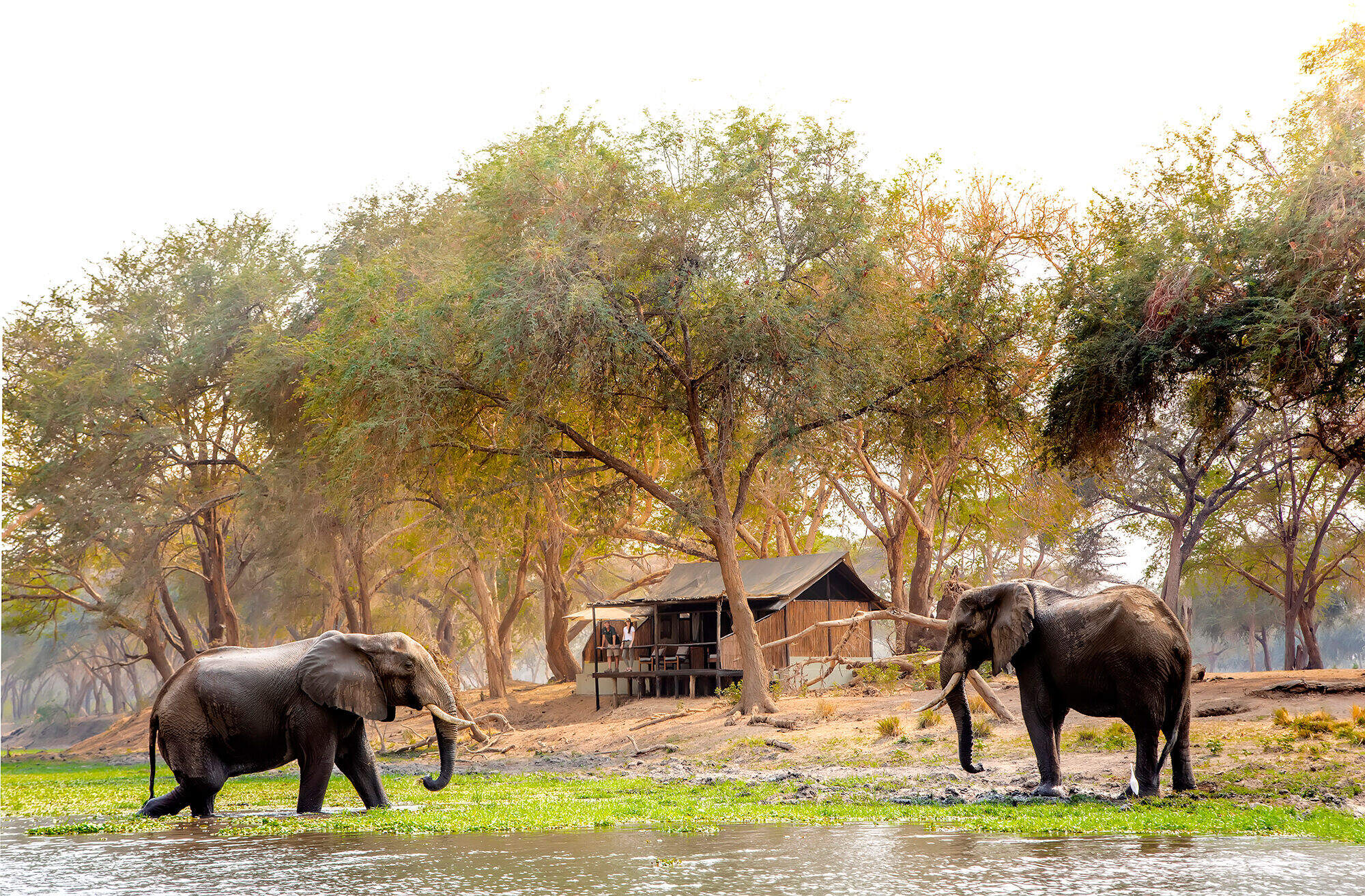
Old Mondoro Bushcamp
For an intimate safari in the Lower Zambezi, with superb guiding, Old Mondoro is up there with the best.
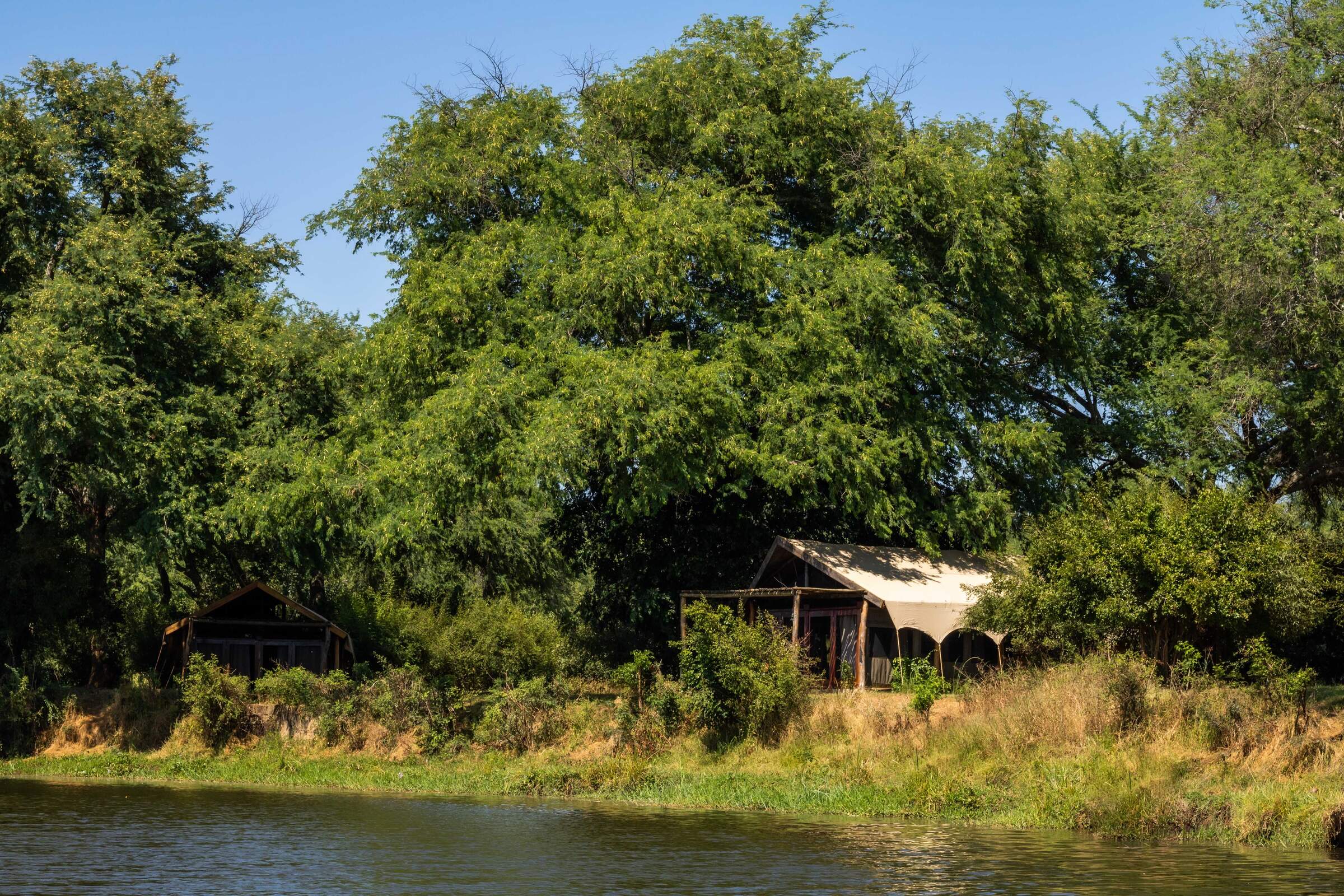
Chongwe River Camp
A blend of the stylish and traditional in a most picturesque site in the Zambezi Valley, Chongwe River Camp offers an excellent safari experience and real value for money.
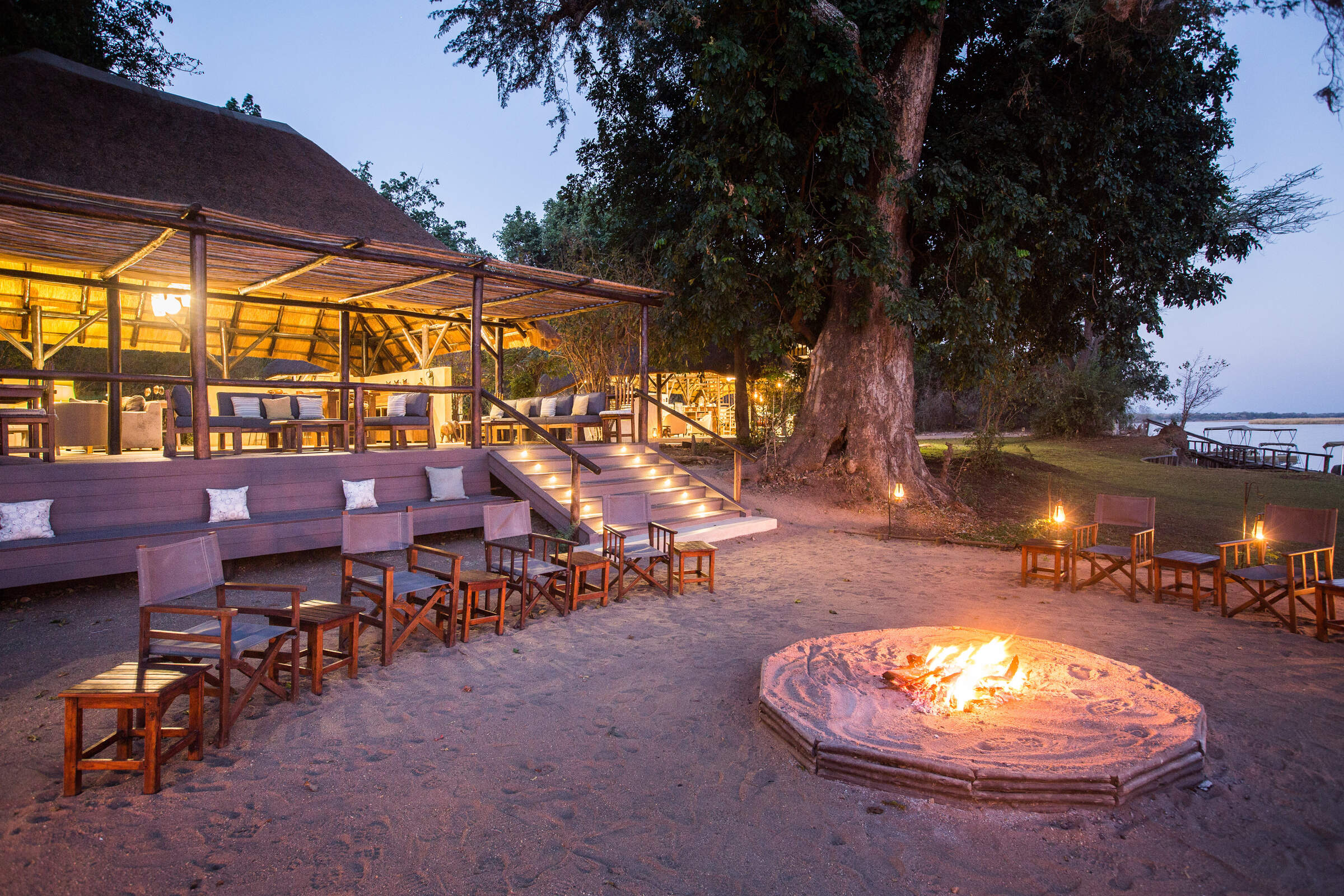
Chiawa Camp
One of Zambia's top safari camps, Chiawa is family owned and run, offering superb service and a flexible approach from a location well inside the Lower Zambezi National Park.
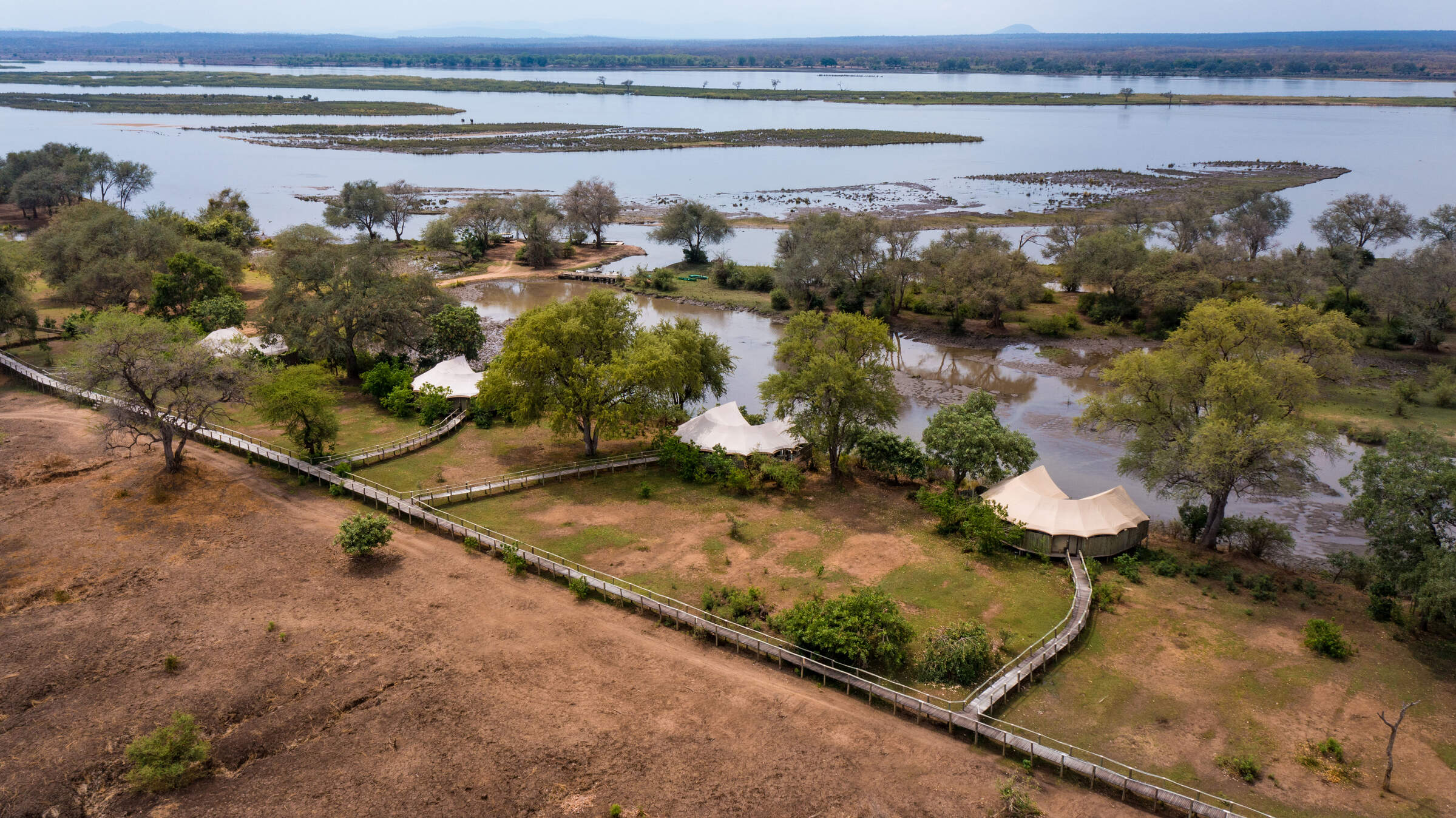
Anabezi Luxury Camp
Anabezi Luxury Tented Camp offers a high degree of understated luxury in a very lovely, quiet part of the Lower Zambezi with outstanding wildlife.
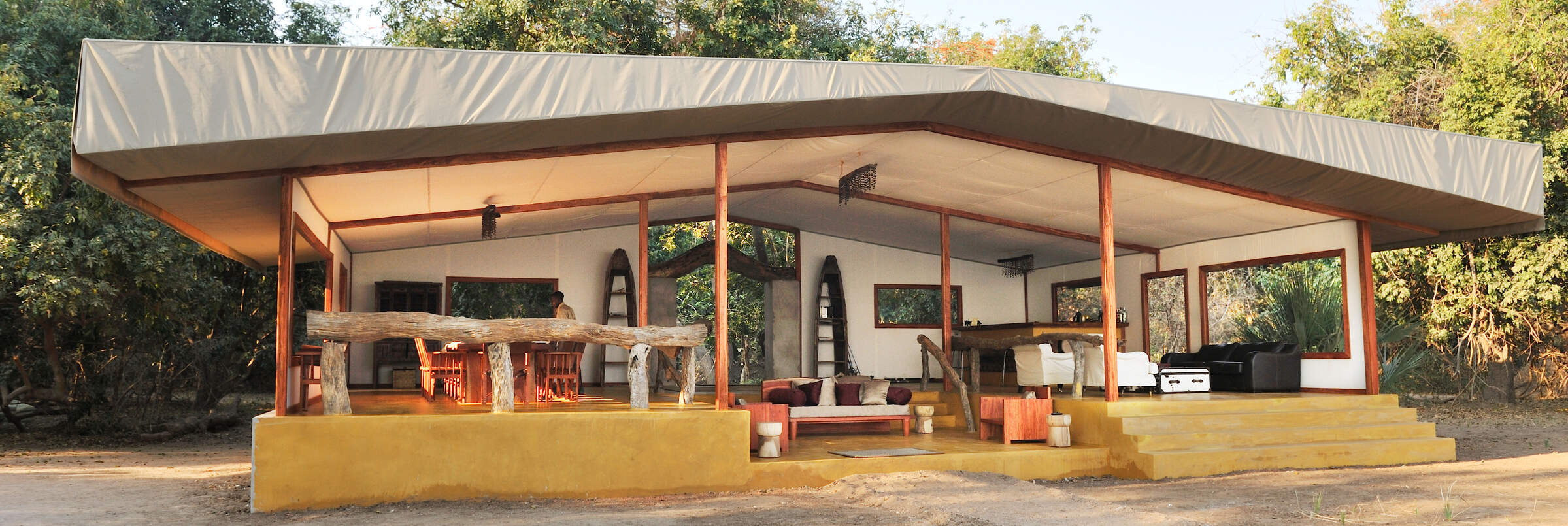
Potato Bush Camp
Potato Bush is located right in the heart of the Lower Zambezi National Park, with privately guided activities taking you on game drives, walks, boat trips and canoeing.
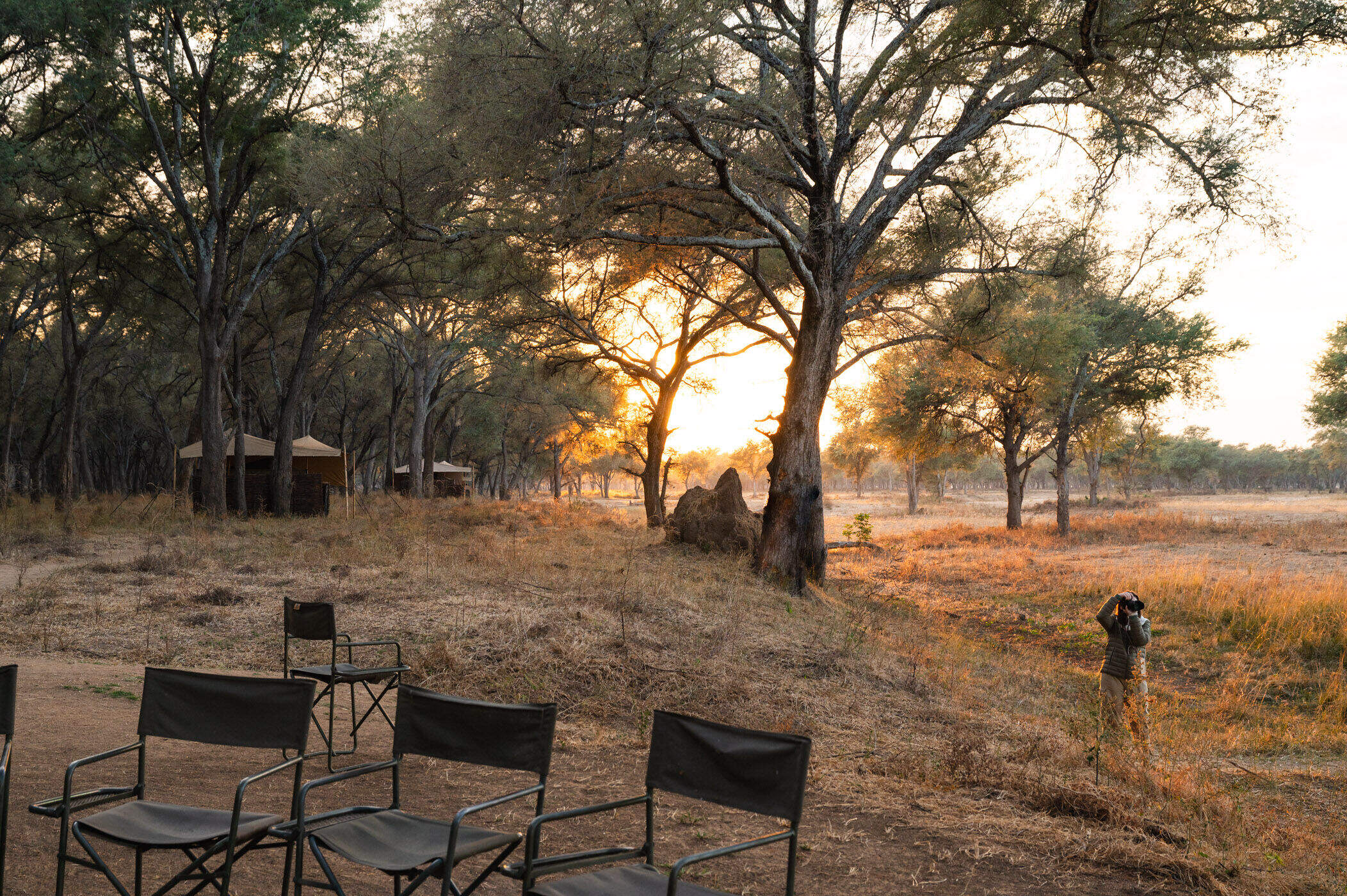
Kutali Camp
Kutali Camp offers the opportunity to experience the wilderness of Zambia’s Lower Zambezi National Park, in this simple tented camp located on Kulefu Island.
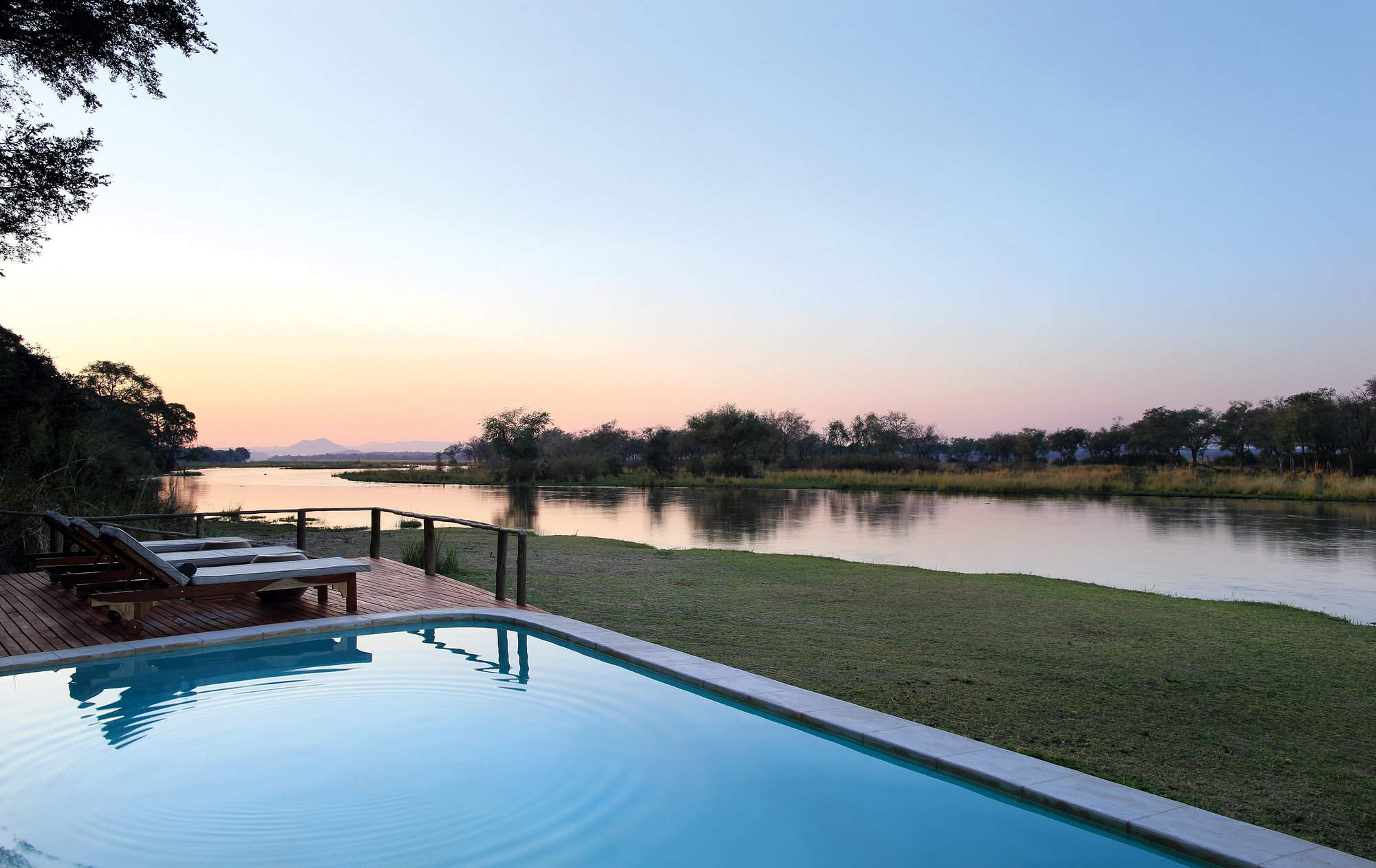
Amanzi
Opened in 2015, Amanzi is an intimate and rustic yet luxury camp in a very quiet area of the Lower Zambezi, with plenty of wildlife and good birding.
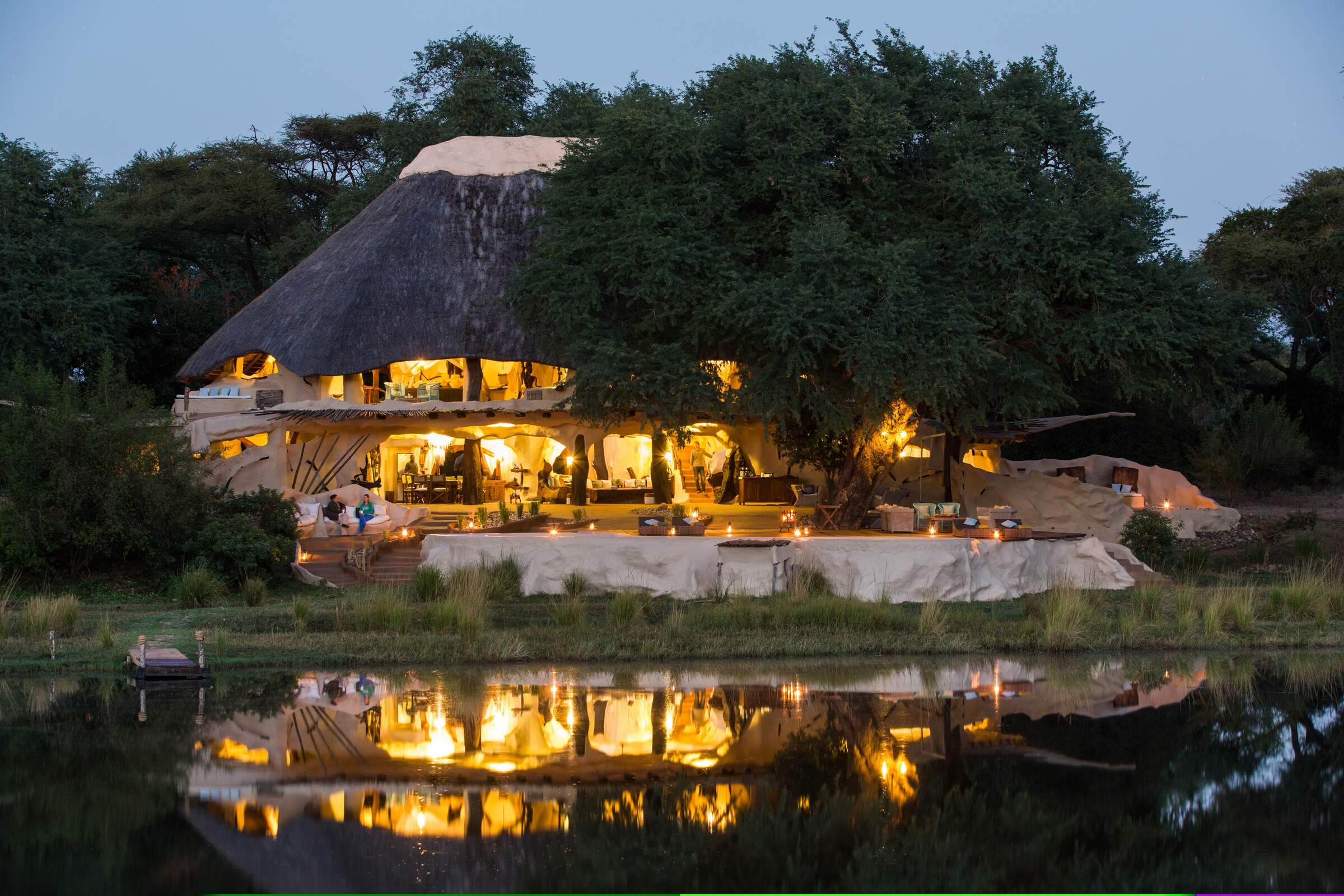
Chongwe River House
Chongwe River House is a stylish four-bedroom house designed for the exclusive use of families and small groups, affording the ultimate in flexibility on safari.
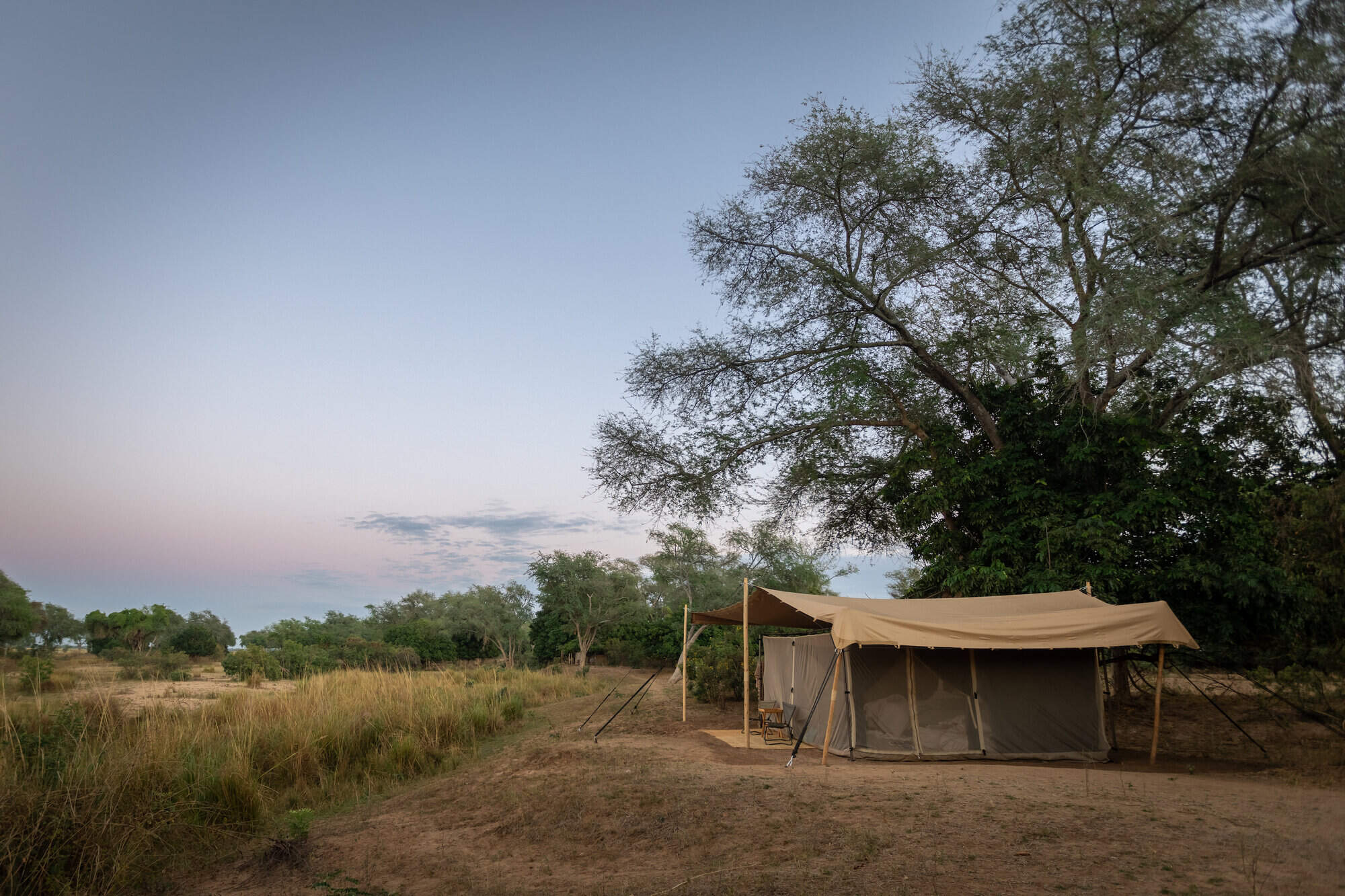
Chula Island Camp
Chula Island Camp offers the opportunity to experience the wilderness of Zambia’s Lower Zambezi National Park, in this simple fly-camp located in a natal mahogany grove on a small island on the Zambezi River.
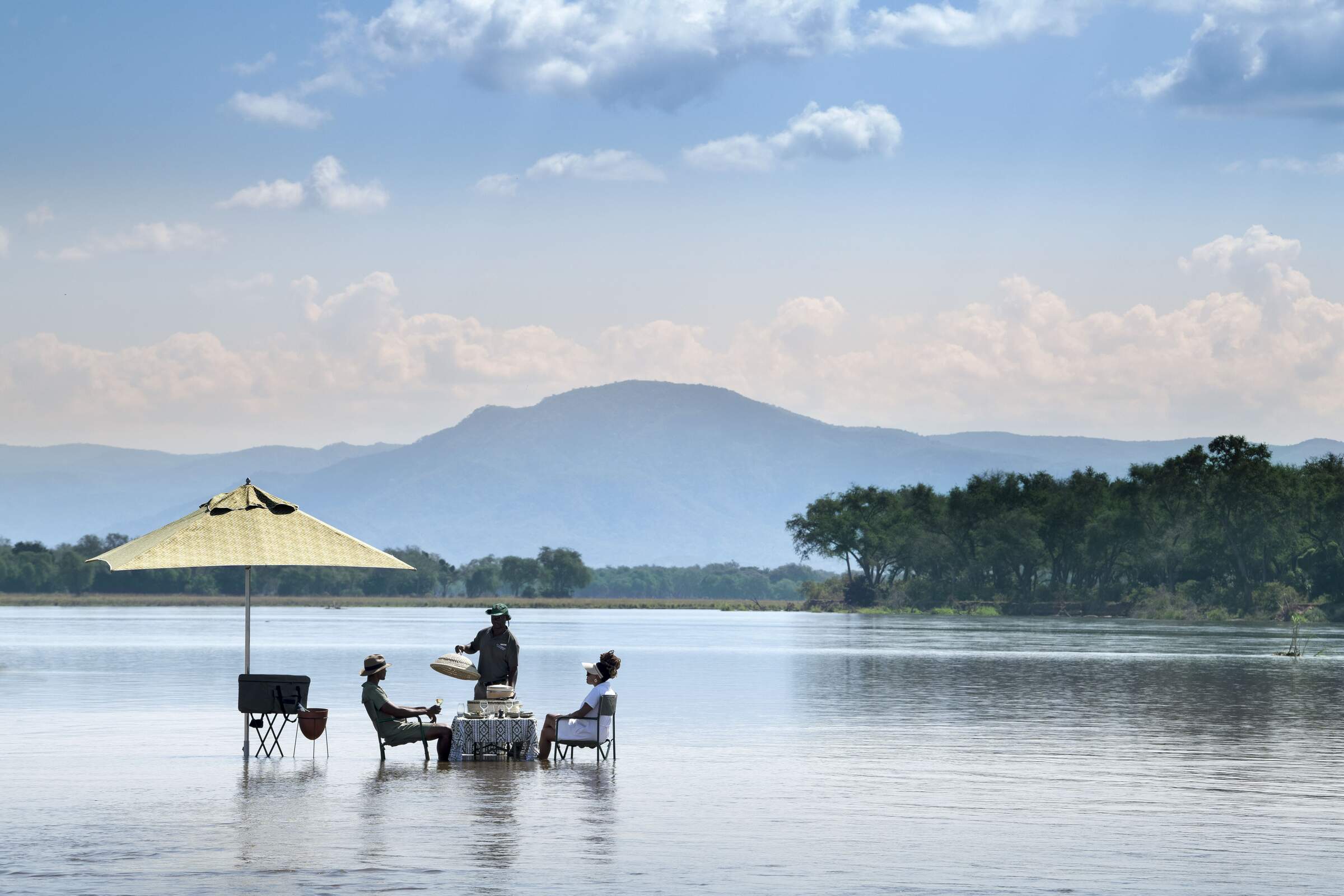
Lolebezi
A chic safari spot, luxurious Lolelbezi is the Lower Zambezi’s newest camp and offers a mix of walking, canoeing and game drives led by excellent guides.
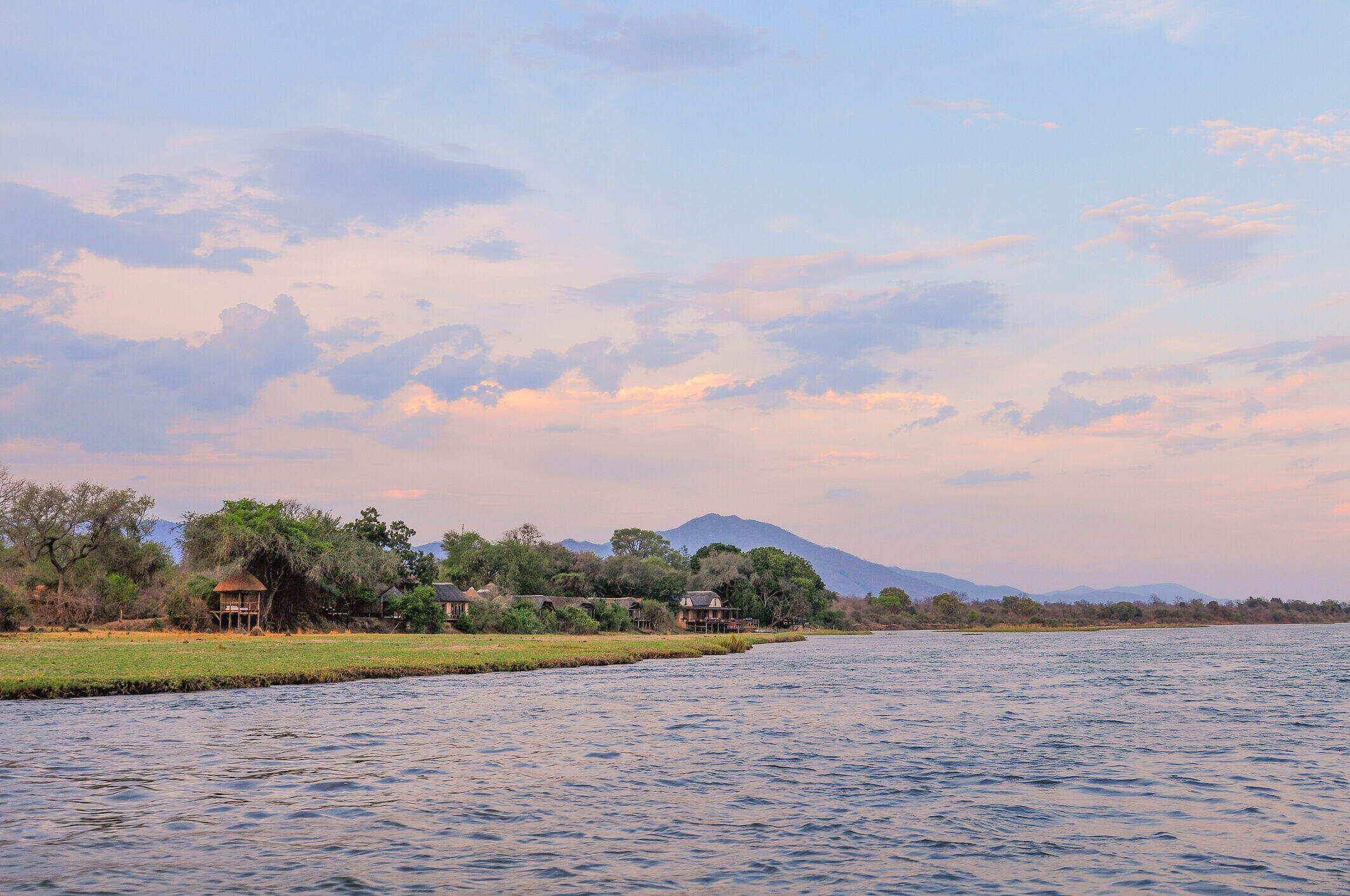
Royal Zambezi Lodge
This family-friendly lodge is located just on the outskirts of the Lower Zambezi National Park, in a great location overlooking the river.
When to go to Lower Zambezi National Park
Our month by month guide: What it's like to visit Sausage Tree Camp in Lower Zambezi National Park
Jan
Feb
Mar
Apr
May
Jun
Jul
Aug
Sep
Oct
Nov
Dec
Lower Zambezi National Park in January
At the peak of Lower Zambezi's green season, expect heavy rainfall for a few hours on many days with sunny spells in between. Temperatures remain high, reaching over 30°C/86°F with high humidity. The landscape is lush and green, but wildlife disperses, making game viewing challenging. The thick vegetation limits walking safaris. However, this is an excellent time for birdwatching as migrant species boost the park's bird count.
Many camps close during this period, but those remaining open offer their lowest rates. The Zambezi River swells, creating spectacular scenes along its banks. Boat safaris can be particularly rewarding, offering chances to spot hippos, crocodiles, and various waterbirds. Despite the challenges, the park's beauty during this wet season is undeniable, with vibrant colours and dramatic skies.
- Peak of rainy season, hot and humid
- Most camps closed, limited accessibility
- Lush green landscape, great for photography
- Dispersed wildlife, challenging game viewing
- Lowest visitor numbers, cheapest rates
Our view
This is not a great time to visit
Weather in January
Lower Zambezi National Park in February
February remains in the heart of the green season in Lower Zambezi National Park. Dramatic thunderstorms deliver a few hours of rain most days, interspersed with clear sunny skies.
The abundance of water disperses game, making wildlife viewing more challenging. However, the swollen Zambezi River allows for unique boat safaris, offering close encounters with hippos and crocodiles. Birdwatching is excellent, with many migratory species present. The lush vegetation creates a picturesque backdrop for photography.
While game drives may be less productive, canoeing trips can be particularly rewarding, allowing quiet approaches to wildlife along the riverbanks. The few camps that remain open charge their lowest rates, providing an opportunity for budget-conscious travellers to experience the park's wet season beauty.
- Continued rainy season, hot and humid
- Many camps still closed, limited options
- Green landscape, photographic opportunities
- Difficult game viewing due to thick vegetation
- Low visitor numbers, affordable rates
Our view
This is not a great time to visit
Weather in February
Lower Zambezi National Park in March
March marks the last month of the green season in the Lower Zambezi. Heavy downpours still occur most days, with water levels at their highest. Temperatures reach over 30°C/86°F, with high humidity.
While many camps remain closed, those few remaining open offer unique wet season experiences. Boat safaris are particularly exciting, with the swollen Zambezi River providing extended exploration areas. Wildlife sightings may be sporadic, but many animals are raising young, offering heartwarming scenes.
Predators like lions and wild dogs are active, taking advantage of vulnerable prey. The lush, green landscape and clear air create stunning photographic opportunities. Birdwatching remains excellent as thousands of birds prepare for their winter migration. Despite challenges, March offers a different perspective of the park's ecosystem.
- Late rainy season, occasional showers
- A few camps begin to reopen
- Landscape still green, good for photography
- Improved wildlife viewing as vegetation thins
- Few visitors; rates for camps low
Our view
This is not a great time to visit
Weather in March
Lower Zambezi National Park in April
As the rains transition to lighter, sporadic showers, April marks a period of change in Lower Zambezi National Park. The landscape remains exceptionally green and lush. While larger wildlife viewing may be sparse, this is an excellent time for birding enthusiasts.
The Zambezi River is at its highest, creating spectacular scenes along its banks. Boat safaris offer unique perspectives of the flooded landscape. As camps slowly start to reopen, visitors can enjoy lower off-season rates. The park's famous canoe safaris become increasingly viable as water levels stabilise.
Night game drives can be particularly rewarding, offering chances to spot nocturnal animals like civets and genets. April's transitional nature provides a blend of wet and dry season experiences.
- End of rainy season, drier conditions
- More camps open, better accessibility
- Landscape transitioning, good for photos
- Improved game viewing, animals more visible
- Visitor numbers rise, rates remain low
Our view
This is not a great time to visit
Weather in April
Lower Zambezi National Park in May
May typically marks the start of the dry season in the Lower Zambezi. While there's a chance of an odd shower, most days are clear and sunny. As winter approaches, daytime temperatures reach highs of around 26°C/79°F. The landscape begins to dry out, improving access throughout the park.
Most camps reopen, offering a wider range of accommodation options. Game viewing improves significantly as animals start to congregate around permanent water sources. Boat safaris on the Zambezi River become increasingly popular, offering close encounters with hippos, crocodiles, and various bird species.
Walking safaris resume, providing intimate wildlife experiences. May's pleasant weather and improved game viewing make it an excellent time to visit, with some camps still offering shoulder season rates.
- Start of dry season, cooler temperatures
- Most camps open, full range of activities
- Landscape drying, clearer wildlife sightings
- Excellent time for walking safaris
- Visitor numbers increase, rates go up
Our view
A good time to visit, with pros & cons
Weather in May
Lower Zambezi National Park in June
The Lower Zambezi sees virtually no rainfall in June, with sunny days predominating. Humidity drops dramatically, and temperatures range from 10°C/50°F at night to 25°C/77°F during the day. The landscape remains relatively lush, but vegetation starts to thin, significantly improving game viewing.
All camps in the park are open, some offering shoulder-season rates. The Zambezi River's water levels begin to recede, concentrating wildlife along its banks. This is an excellent time for canoe safaris, offering unique perspectives of the park's ecosystem.
Game drives become increasingly productive, with higher chances of spotting predators like lions and leopards. June's pleasant temperatures and improved wildlife sightings make it a popular month for visitors.
- Dry season, cool days and cold nights
- All camps open, peak activity options
- Improved wildlife viewing around water sources
- Prime time for walking safaris and game drives
- High season begins, increased rates
Our view
A very good time to visit
Weather in June
Lower Zambezi National Park in July
As the dry season continues in Lower Zambezi National Park, vegetation thins and water becomes scarcer. Wildlife is starting to cluster around major water sources, particularly the Zambezi River, leading to excellent game viewing opportunities.
July marks the heart of winter, with daytime temperatures in the 20s Celsius / 70s Fahrenheit but dropping to single digits at night. Early morning and late evening game drives can be very chilly, with camps often providing blankets and hot water bottles.
This is prime time for walking safaris, offering exciting wildlife encounters. Canoe trips on the Zambezi River are particularly rewarding, with high chances of spotting elephants coming to drink. Visitor numbers increase, and properties charge peak season rates.
- Peak dry season, clear skies
- Excellent game viewing, especially near river
- Popular time for canoe and boat safaris
- Night drives offer nocturnal wildlife sightings
- Peak season, highest rates and visitor numbers
Our view
A very good time to visit
Weather in July
Lower Zambezi National Park in August
August in the Lower Zambezi offers excellent game viewing as wildlife congregates around remaining water sources. With virtually no chance of rain, sunny days are almost guaranteed. Temperatures can drop below 5°C/41°F at night but climb to the 20s Celsius / 70s Fahrenheit during the day.
The thinned vegetation provides clear views of animals, making this one of the best months for photography. Boat safaris on the Zambezi River offer close encounters with hippos, crocodiles, and elephants. Tiger fishing is at its peak, attracting anglers from around the world.
Walking safaris provide thrilling up-close wildlife experiences. This is one of the most popular months to visit, with camps charging their highest rates and often fully booked well in advance.
- Very dry, animals concentrate near water
- Outstanding wildlife viewing opportunities
- Ideal for photography and walking safaris
- Zambezi River cruises highly recommended
- Peak season continues, advance booking needed
Our view
Fantastic: the very best time to visit
Weather in August
Lower Zambezi National Park in September
September is one of the best times to visit Lower Zambezi National Park for wildlife enthusiasts. Rain is almost unheard of, humidity is low, and daytime temperatures climb to the low 30s Celsius / high 80s Fahrenheit.
Water is scarce, concentrating wildlife around the Zambezi River and remaining water holes. Game viewing is at its peak, with high chances of seeing predator-prey interactions. Elephant herds are frequently spotted crossing the river.
Canoe safaris offer thrilling close encounters with wildlife. Night game drives provide opportunities to spot nocturnal animals like leopards and genets. Birdwatching remains excellent, with many species nesting. However, this popularity comes at a price: camps charge their highest rates and are often fully booked far in advance.
- Hot days, warm nights, very dry
- Excellent month for wildlife viewing
- Zambezi River at its lowest, great for canoeing
- Increased elephant sightings near water
- High season, camps can be fully booked
Our view
Fantastic: the very best time to visit
Weather in September
Lower Zambezi National Park in October
October marks the peak of the dry season in the Lower Zambezi. Away from the Zambezi, the national park is brown and barren, with little ground-level vegetation. Temperatures can be uncomfortably hot, often exceeding 40°C/104°F during the day.
Despite the heat, this is considered the best month for game viewing. The scarcity of water forces animals to congregate around the main river, leading to frequent wildlife sightings and predator-prey interactions.
Boat safaris offer relief from the heat and excellent opportunities to observe elephants, hippos, and crocodiles. Walking safaris may be challenging due to the heat but provide thrilling wildlife encounters. October is prime time for spotting large predators like lions and leopards.
- Hottest month, animals congregate at river
- Peak time for wildlife viewing and photography
- Excellent for boat safaris and fishing
- Chance to see elephants crossing the river
- End of high season, some rate reductions
Our view
A very good time to visit
Weather in October
Lower Zambezi National Park in November
November typically marks the end of the dry season in the Lower Zambezi. While the timing of rains is uncertain, temperatures remain high and humidity builds.
Early November may still offer excellent game viewing, with animals concentrated around water sources. As the month progresses, the arrival of rains leads to rapid vegetation growth and wildlife dispersal. This transition period can be fascinating to witness. The initial rains bring relief to the parched landscape, with new growth attracting grazing animals.
Birdwatching improves as migratory species arrive in the valley. While some remote camps close, those that remain open significantly drop their rates. November offers a unique opportunity to experience both dry and wet season aspects of the park.
- Start of rainy season, occasional showers
- Wildlife disperses as water becomes available
- Good birding as migratory species arrive
- Lush landscapes return, photography improves
- Shoulder season, lower rates and fewer visitors
Our view
A good time to visit, with pros & cons
Weather in November
Lower Zambezi National Park in December
December marks the start of the green season in the Lower Zambezi National Park. Heavy thunderstorms occur most days, interspersed with sunny spells. Temperatures reach over 30°C/86°F with high humidity.
The rainfall brings abundant water to the landscape, encouraging lush vegetation growth. While game viewing becomes more challenging due to the thick bush and dispersed wildlife, this is an excellent time for birdwatching. Migratory birds arrive, boosting the species count. Boat safaris on the swollen Zambezi River offer unique perspectives of the flooded landscape.
Many camps close for the season, but those remaining open charge their lowest rates. Despite the challenges, December offers a green and vibrant aspect of the park, with dramatic skies and fewer visitors.
- Rainy season in full swing, hot and humid
- Some camps close, limited accessibility
- Newborn animals, great for bird watching
- Challenging game viewing, but lush scenery
- Low season, cheapest rates, fewer tourists
Our view
This is not a great time to visit
Weather in December

Looking for inspiration on where to travel next?
Visit our trip chooser to explore your options and find inspiration for your perfect African adventure
Inspire me